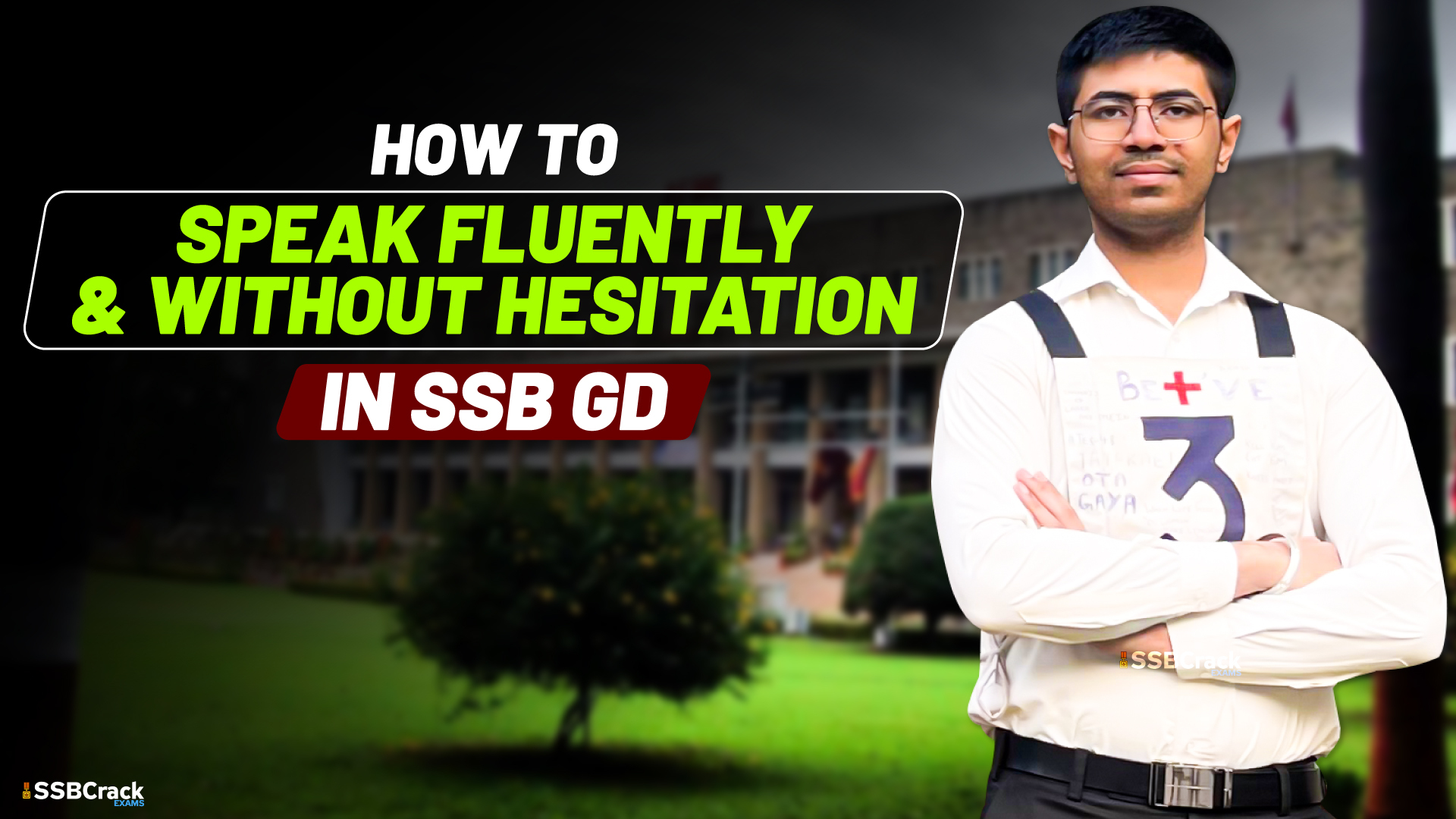Group Discussions (GD) are a critical component of the Services Selection Board (SSB) interview process, designed to assess a candidate’s communication skills, leadership qualities, and ability to express thoughts clearly. Speaking fluently and without hesitation is crucial to leaving a positive impression during GDs. In this article, we’ll explore strategies to help candidates develop the confidence and fluency needed to excel in group discussions within the SSB interview setting.
- Knowledge and Awareness: Stay well-informed about current affairs, national and international issues, and relevant topics. A candidate who possesses knowledge is likely to speak more confidently. Regularly read newspapers, watch news programs, and stay updated on events to build a strong foundation for discussions.
- Organize Your Thoughts: Before expressing your opinion, take a moment to organize your thoughts. Jot down key points mentally to structure your response. This helps in presenting your ideas coherently and ensures you don’t fumble during the discussion.
- Practice Active Listening: Actively listen to what others are saying during the GD. This not only demonstrates respect for others’ opinions but also allows you to respond appropriately. Paying attention helps you contribute meaningfully to the discussion, making you appear more confident.
- Start with a Positive Note: Begin your contribution with a positive statement or agreement with a fellow participant’s viewpoint. This not only sets a collaborative tone but also gives you a moment to gather your thoughts before diving into your main points.
- Maintain Eye Contact: Establishing eye contact with other participants demonstrates confidence and sincerity. Avoid looking down or around the room while speaking, as it can convey hesitation. Engaging visually with others creates a more impactful and confident presence.
- Control Your Pace: Speaking too quickly may lead to hesitations and stumbling over words. Practice maintaining a moderate pace. This not only ensures clarity but also allows you to articulate your thoughts effectively.
- Minimize Fillers and Hesitations: Be mindful of using fillers such as “um,” “uh,” or repetitive words like “you know.” Practice eliminating these from your speech to convey a more composed and fluent demeanor. Take a pause if needed instead of using fillers.
- Body Language Matters: Non-verbal cues play a significant role in communication. Maintain an open and confident posture. Avoid fidgeting or nervous gestures. A poised physical presence complements your verbal communication, creating an overall impression of assurance.
- Be Concise and Relevant: Focus on being concise and relevant in your contributions. Rambling or going off-topic can lead to confusion and may impact your perceived confidence. Stick to the key points and contribute meaningfully to the ongoing discussion.
- Practice Mock Group Discussions: Conduct mock group discussions with friends or fellow aspirants. Simulating the SSB interview environment allows you to practice responding to different viewpoints, improving your articulation and confidence.
- Feedback and Improvement: Seek constructive feedback from peers or mentors after mock discussions. Identify areas for improvement and work on refining those aspects. Continuous practice and refinement based on feedback are key to mastering the art of speaking confidently.
Conclusion:
Mastering fluent and confident speech in group discussions is a skill that can significantly enhance a candidate’s performance in the SSB interview process. By staying informed, organizing thoughts, practicing active listening, and incorporating these strategies, candidates can develop the poise and fluency needed to navigate group discussions successfully. Remember, confidence is built through consistent practice and a commitment to improvement, and these qualities will undoubtedly contribute to a positive and lasting impression during your SSB interview.







